“I asked FCA to let me train other girls like I had been trained“ – vocational training by local artisans enables refugee youth
Many young refugees in Uganda have loads of potential, but their education might be cut short because of inability to pay school fees, or by other hurdles in life. But vocational training by skilled local artisans and young professionals can help the youngsters to earn a living.
Seka Dorah arrived in Uganda in 2019 after fleeing conflict in Congo. To make ends meet, she got married at a young age, hoping to find stability. However, life wasn’t as easy as she thought. She still struggled to take care of her children, and the challenges of providing for her family weighed heavily on her.
Dorah, who is now a 25-year-old single mother, has built a flourishing tailoring business in Kyaka II refugee settlement in Uganda. She owns a tailoring shop together with a friend, something they decided on after she enrolling in the Refugee and Host Community Youth Empowerment & Transformation Initiative (RETI) Program – a program by Finn Church Aid (FCA), in partnership with Muni University and other partners.
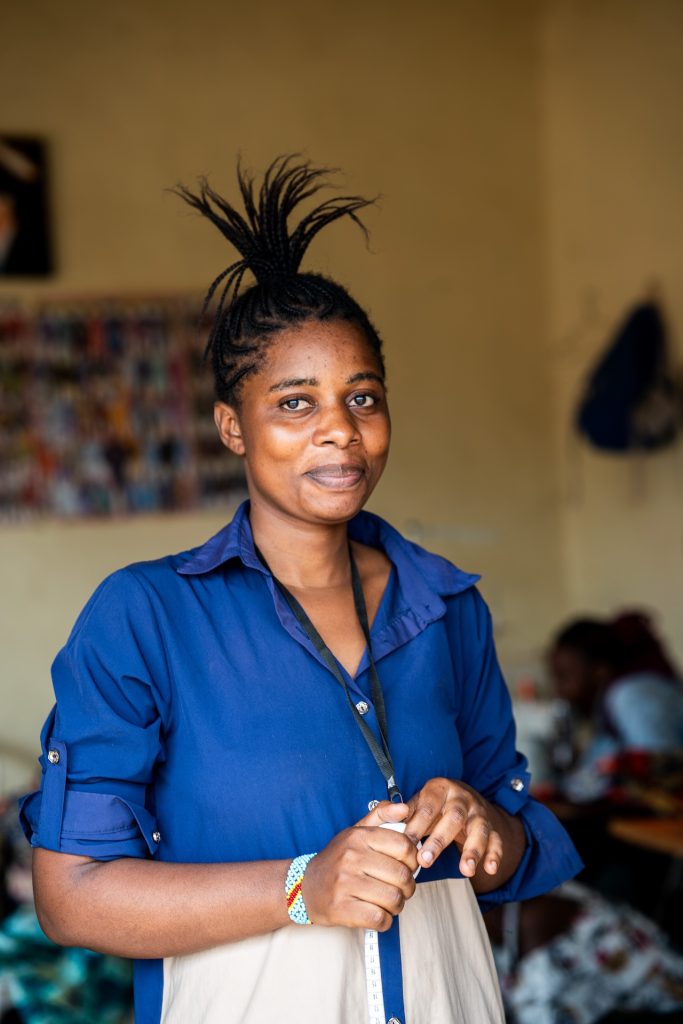
“I joined the RETI program in 2024 and completed it in July of the same year. I didn’t have any idea about tailoring except how to use a thread and needle to repair my torn clothes. After the three months of training, I was able to make a full cloth,” she narrates
Pooling resources with a friend, they each purchased a sewing machine for 300,000 UGX (83 USD), rented a shop in Kyaka II refugee settlement, and launched their business. The shop has grown steadily, providing a stable income for Dorah, who now earns between 250,000 and 300,000 UGX every month.
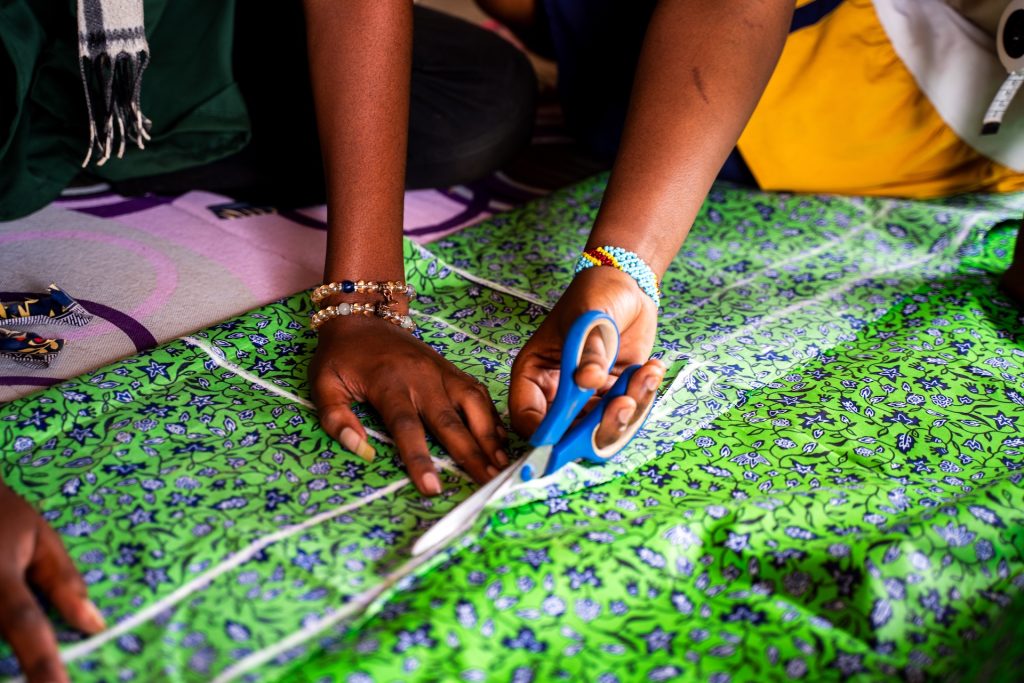
“Every Friday, I save 20,000 UGX (5.50 USD) in our savings group, buy more materials for the shop, and use the rest to take care of my family’s needs. My life is getting better. I can feed my family,” she says.
Digital skills create work opportunities
Although some participants learn classic artisanal work, others learn a digital trade. For example, 20-year-old Carine Ziringa Ashuza was able to learn ICT-skills through the RETI-project.
“It has changed me. Before, I couldn’t support myself, but now I am able to do so. I used to study, but I dropped out of school in senior 4, because I wasn’t able to pay my school fees.”
Ashuza decided to apply for RETI when a friend of hers told her about the program. After being accepted she learned how to use a laptop, how to use software like Excel and Word, as well as how to write emails and keep records. Now she has been working at a plastic recycling startup for eight months, doing finances and accounting.
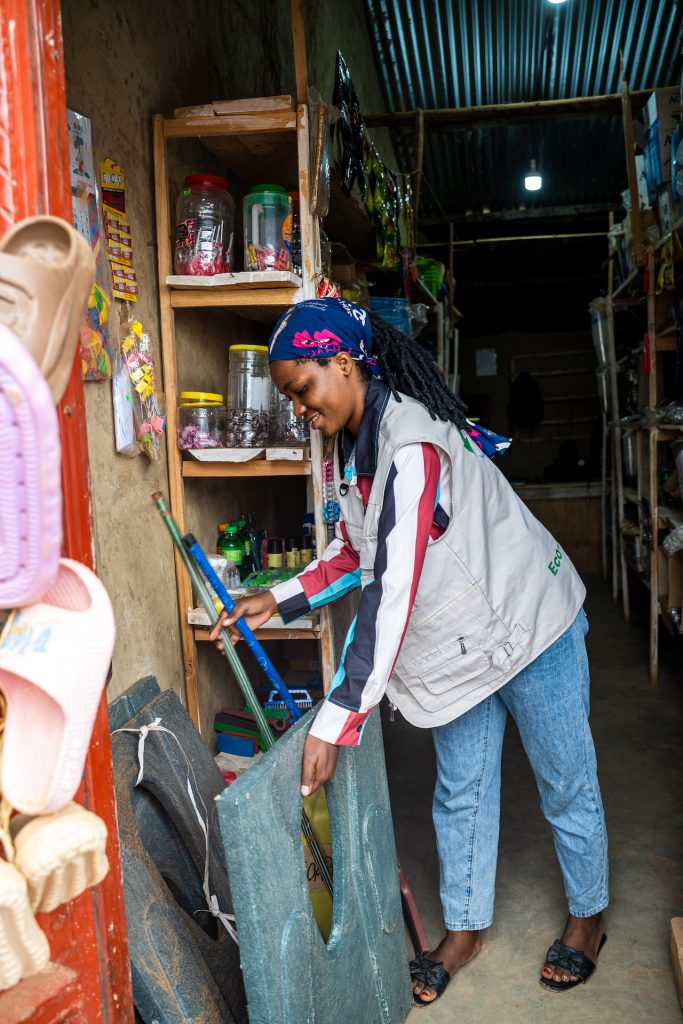
“The things I learned during the training helped me a lot. That made it possible for me to secure a job,” Ashuza says.
Her boss Odongo Samuel, founder and CEO of SafePlas, a company that recycles plastic into toilet seats, agrees.
“We had 75 people who applied for the job, but she stood out by being competent, confident, outspoken and willing to challenge herself,” Samuel says.
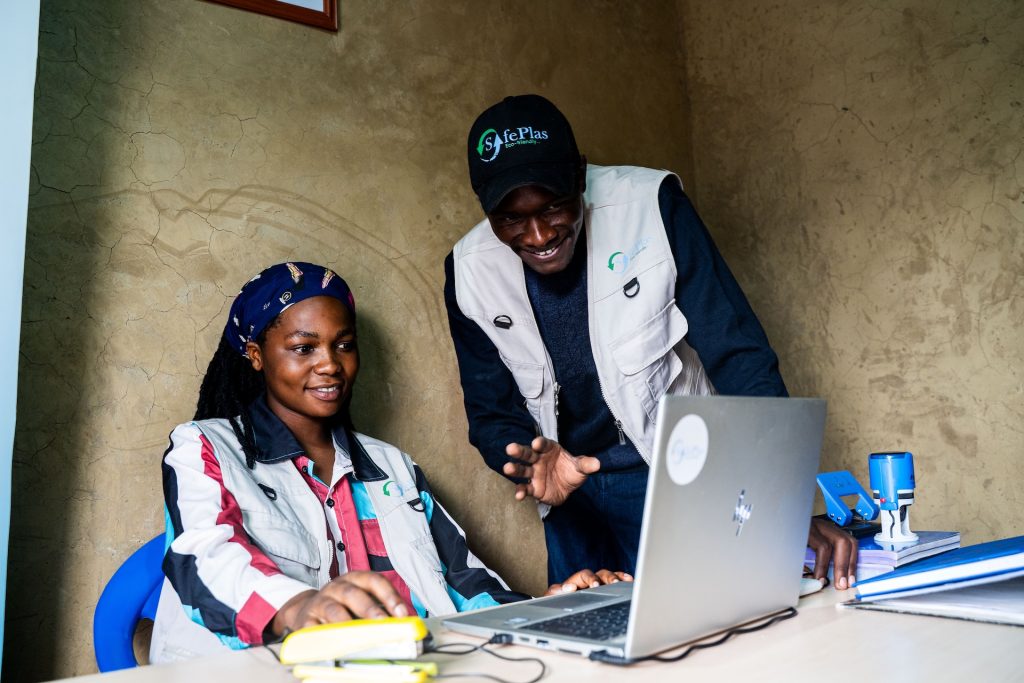
Samuel says that the only skills they had to teach her was accounting.
“We had Carine take an online class in accounting, but hiring as a startup the most important characteristics she had was drive and open-mindedness. “
Passing skills on to peers
One of the important features of the program is that local artisans are the ones who train the participants. That way, the participants will learn market relevant skills and entrepreneurial spirit, while the trainers are able to earn a bit of extra money as teachers.
In some cases, the trainers have employed participants. In other cases, the participants have become trainers themselves.
Dorah, who now gives back to her community by helping others gain the same skills that transformed her life. She approached FCA with a request to be included in the program as a trainer for young girls in the settlement.
“I was proud of the change I had achieved in a short period of time and wanted to change others. I asked FCA to let me train other girls like I had been trained,” Dorah explains.
With FCA’s support, Dorah began training five young girls in tailoring, sharing her knowledge and inspiring them to follow in her footsteps.
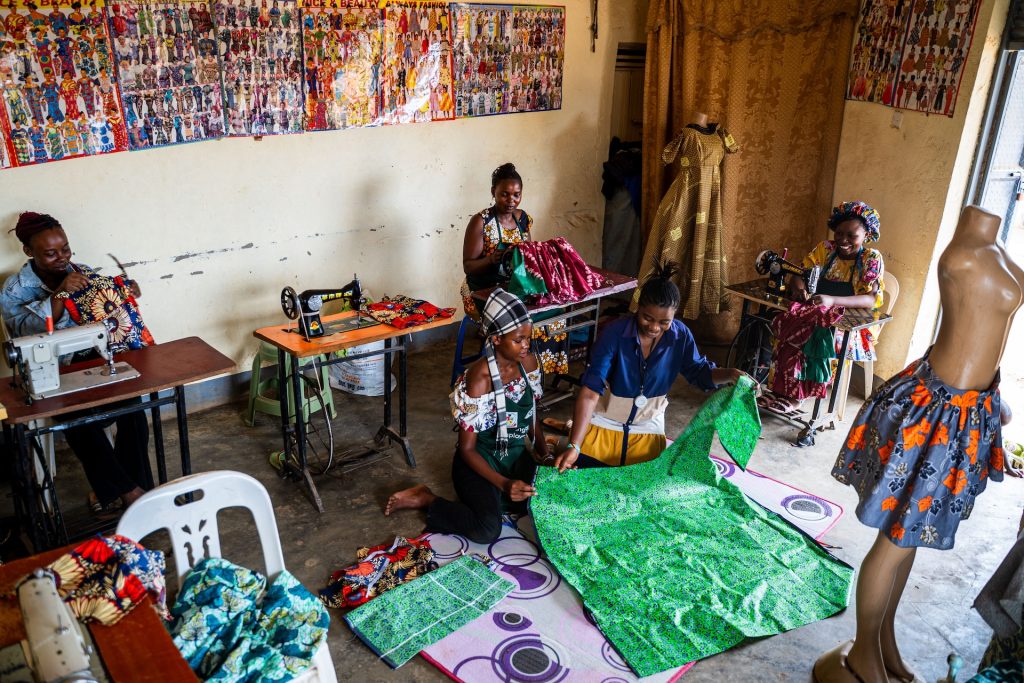
Dorah’s passion for empowering others has driven her to expand her training efforts. She rented six additional tailoring machines to ensure her trainees have the tools they need to succeed. She is also proud that the extra income she receives for training others has strengthened her business and boosted her earnings.
“What excites me is seeing my trainees, who joined with zero knowledge about tailoring, do a good job and improve over time,” she says.
Text: Linda Kabuzire and Björn Udd
Photos: Björn Udd